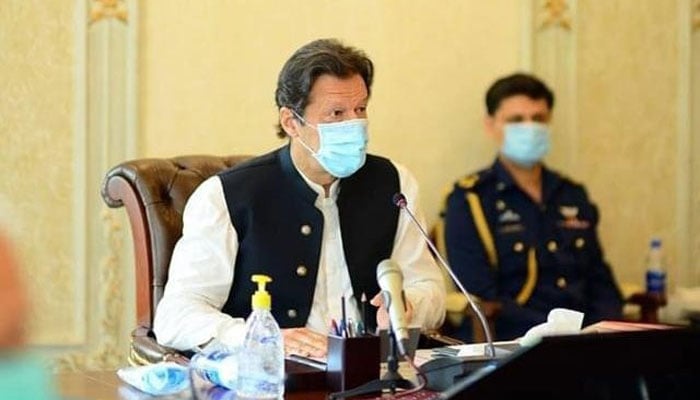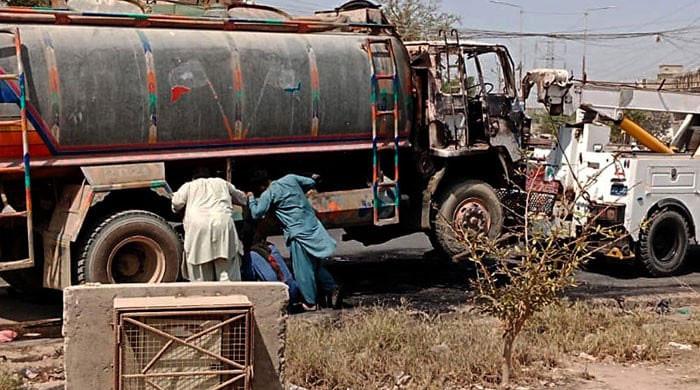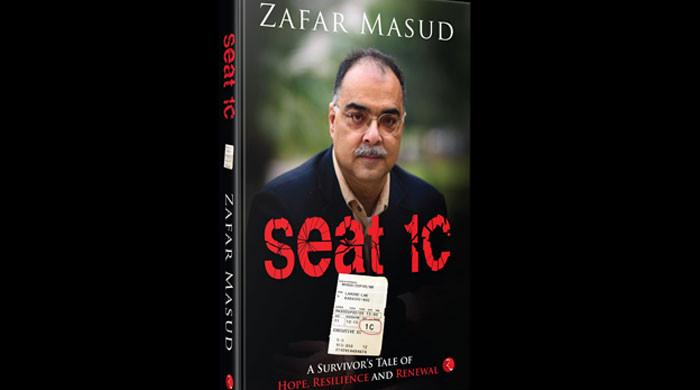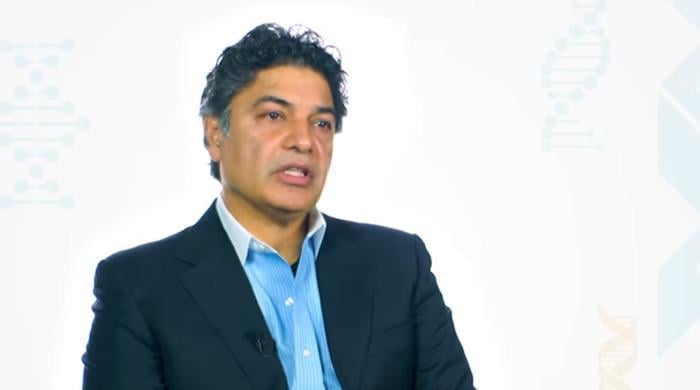Federal cabinet agreed to tighten noose around sugar mafia: Sheikh Rasheed
Cabinet accords approval to country's first mobile phone device manufacturing policy, discusses economic indicators for FY2019-20
June 02, 2020

Minister for Railways Sheikh Rasheed Ahmad on Tuesday said that the federal cabinet has decided to tighten the noose around the sugar mafia.
In a conversation with the media, following a federal cabinet chaired by Prime Minister Imran Khan in Islamabad, the minister vowed that the sugar mafia "will not be spared".
"The arrest proceedings of these evil doers will be based on actions dating back to 1985," he added.
Rasheed said that it was also decided that an investigation based on the sugarcane report will be carried out. "We will expose everyone's unlawful deeds."
"We are going to close in on all those who flout the law, the sugar mafia, money launderers, and smugglers. The cabinet has avowed no one will be spared," he said.
"I said that those who present a conflict of interest must not be in attendance during the meeting," he added.
Mobile phone device manufacturing policy
The cabinet also accorded approval to the country's first mobile phone device manufacturing policy, according to a notification by the Ministry of Industry and Production.
The policy aims to incentivise local assemblers who will provide jobs to local engineers, skilled and semi-skilled educated youth.
Under the policy, the assembly of mobile phones valued under $350 will be exempt from fixed income tax.
Additionally, an increase in the fixed income tax of phones in the $350-$500 category by Rs2,000 was approved.
Phones valued more than $500 will also see a rise in fixed income tax by up to Rs6,300.
Local manufacturers will be allowed a 3% R&D allowance for export of phones. The sale of these phones will be provided a 4% reduction in withholding tax.
Manufacturers approved by the Pakistan Telecommunication Authority will be exempt from regulatory duty for CKD/SKD manufacturing.
"The PTA will allow activation of handsets manufactured in the country under import authorisation of inputs by IOCO in CKD/SKD kit (8517.1211) and not under HS Code 8517.7000 i.e. parts," reported APP.
"This will eliminate misdeclaration in parts category at the import stage," it said.
The government will commit to maintaining a tariff differential between CBU and CKD/SKD till the expiry of the policy.
The EDB will act as the sectretariat for the implementation of the manufacturing policy.
According to the industry and production ministry, the total volume of trade in Pakistan for mobile phones is approximately Rs40 million a year. A total of 16 companies are currently manufacturing phones in Pakistan.
The local industry has expressed satisfaction at the new policy, said the notification.
Export of PPEs approved
According to Radio Pakistan, the cabinet approved the export of locally manufactured personal protection equipment and hand sanitisers.
It was decided that joint committee comprising members from the ministries of commerce, health, industrial production, and science and technology will have the discretion to ban the export of any item given domestic needs.
The cabinet underscored the importance of public awareness so people strictly observe SOPs issued by the government to safeguard against the spread of coronavirus.
Cabinet members expressed satisfaction over an increase from two to 200 laboratories equipped with testing facilities. They were informed testing capacity has been ramped up to 32,000 tests per day, up from an initial 400.
Economic indicators
Additionally, the cabinet discussed the progress in the upcoming federal budget for FY2020-21 and a detailed briefing on the current economic indicators was given.
The cabinet was told that due to the coronavirus pandemic, the country's exports fell by 54% in the month of April. Thereafter, in May, a rise by 34% was witnessed.
Foreign remittances worth $18.8 billion were received in FY2019-20. At end April, foreign exchange reserves of $18.7bn were recorded.
The current account deficit in FY2019-20 was recorded at $3.3bn, equivalent to 1.5% of the Gross Domestic Product (GDP).
In FY2018-19, the current account deficit stood at $11.4bn, which was 4.7% of the GDP.
In the current financial year, exports stood at $16.4bn, whereas imports stood at $19.7bn, marking a balance of trade of $2.6bn.
The pandemic also impacted the Federal Board of Revenue's (FBR) tax collection.
Despite a seemingly bleak situation, the primary balance remained positive, the cabinet was informed.
It was told that it was for the first time in the country's history that the primary balance remained positive and was chalked up to the "government's policies and financial discipline".
The cabinet was also briefed on the progress in Public Sector Development Programmes (PSDP) and provincial development programmes.
It was also apprised of the cotton, sugarcane, and corn production levels as well as manufacturing output from big industries.
The briefing also included a discussion on inflation. Whereas inflation stood at 14.5% in January, it was recorded at 8.5% in April.
The FY2019-20 witnessed a total investment of $1.864, whereas in the previous financial year, the figure stood at a mere $403 million, the cabinet was told.
The policy rate has reduced from 13.25% to 8%.
The next budget will keep in mind the current economic situation, the cabinet was informed.
The prime minister said that measures for economic stability and improvement will continue.
He stressed on the need for government departments and ministries to reduce their expenses and for a continued focus on an improvement in their performance.
Meeting agenda
The session began at 12pm at the Prime Minister House.
All government representatives, including the premier, strictly followed standard operating procedures to guard against the spread of COVID-19 — foremost of which is the use of a mask, which has been declared mandatory by the government.
Among other issues that formed the focus of the meeting were the country's current political issues and the progress in the PIA plane crash investigation as well as the identification of bodies.
Furthermore, it was apprised of the locust swarm attacks on crops across the country. A joint presentation in this regard was given by National Disaster Management Authority and officials from the ministry of food security.
A nine-item agenda was prepared for the session. Among the items that were expected to be approved were:
- The construction of an Asian Development Bank office in Islamabad
- The appointment by deputation of the director general of the Financial Monitoring Unit
- Employees of the Utility Stores Corporation to be declared as essential workers
- Extension in deputation of district and sessions judge Muhammad Saad Qureshi at the banking court in Karachi
- Appointment of judicial officers
- Appointment of National Shipping Corporation chairman in Karachi
- Appointment of GHPL managing director
- Appointment of Central Power Purchasing Agency chief executive











